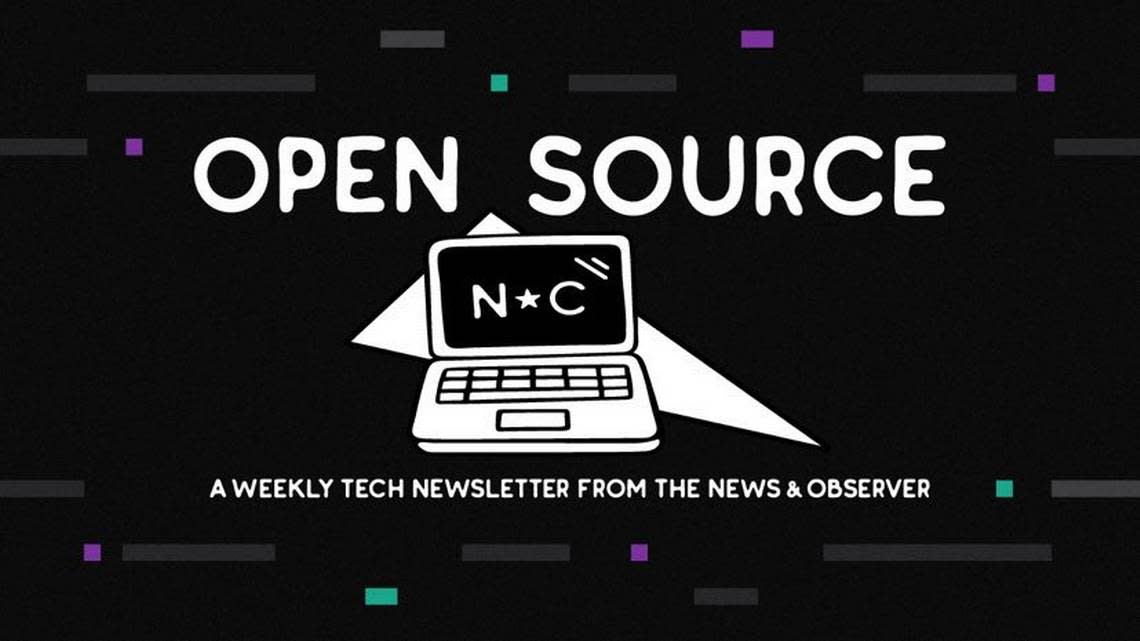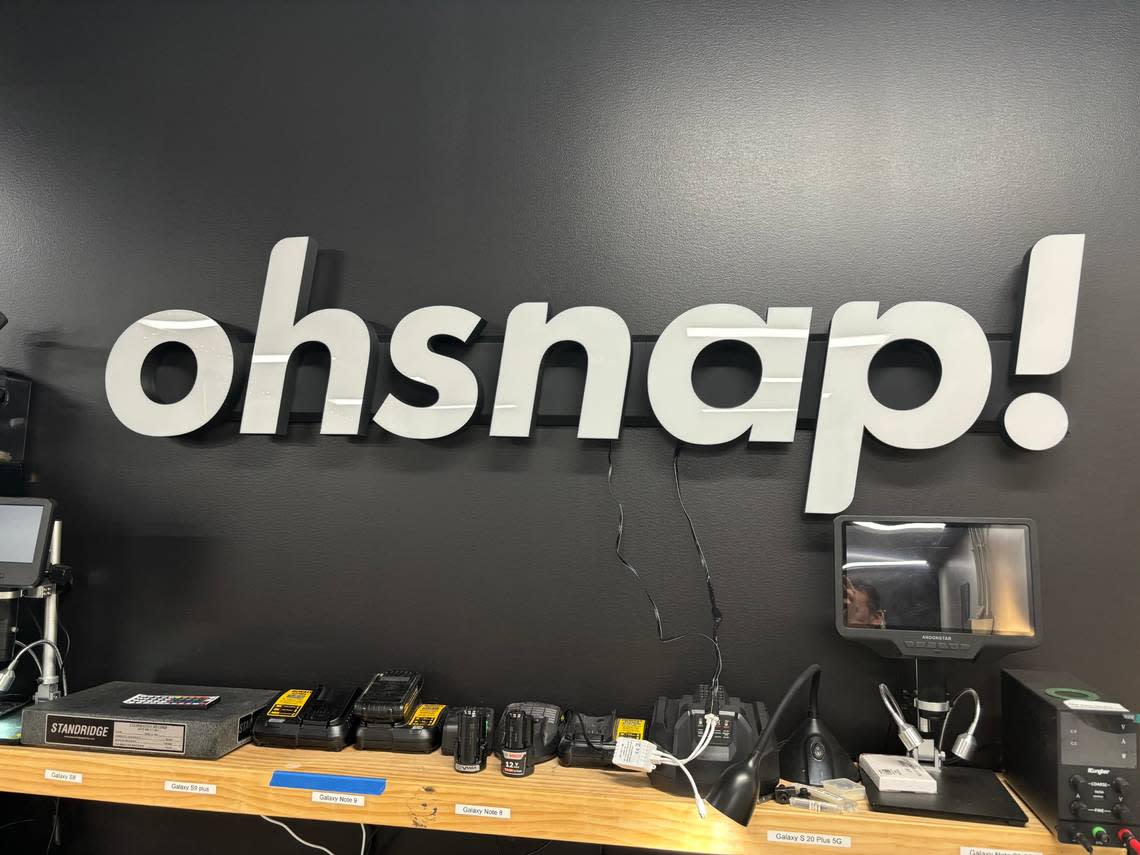Open Source: Eye implant maker with Neuralink tie has RTP footprint. It’s expanding.
I’m Brian Gordon, tech reporter for The News & Observer, and this is Open Source, a weekly newsletter on business, labor and technology in North Carolina.
Brain-computer interfaces are here. In January, Elon Musk’s company Neuralink put a small implant into its first patient, a paralyzed 30-year-old who — despite recent setbacks — says he can now multitask with his mind.
Among the handful of businesses in this emerging sector, at least one has a footprint in the North Carolina Triangle. And this week, the company promised to grow here.
Called Science Corporation, the Bay Area-based startup is developing implants to help blind patients — whose eye rods and cones have deteriorated over time — see again. One of the implants, PRIMA, is in late-stage human trials in Europe where the company says around 60 patients already have the 2x2 millimeter chip in their retinas (Science acquired the French company behind PRIMA this spring.)
This bionic eye uses electricity to stimulate the back part of the eye so users can still see by forming images in their brains. A second Science implant, Lightsheet, uses light to perform a similar task — though it remains in earlier-stage animal testing in the U.S.
Science’s CEO Max Hodak was once the president of Neuralink, by the way, and other Science founders had also worked at Musk’s company.
So where does North Carolina come in?
In December 2022, Science purchased the Durham company MEMSCAP, which produced microelectromechanical systems, or MEMS. Science later branded its acquisition Science Foundry. This week, Science announced it will invest up to $65 million to increase the Foundry from 5,000 square feet to 57,000, with the company intending to move into a second building about five minutes from its current location off East Cornwallis Road.
Durham County awarded Science a $930,000 performance-based incentive to complete this expansion, with the company committing to create at least 50 jobs.
“We’re just starting to get to the point where (these implants are) becoming increasingly prevalent, and so people are starting to hear about it more,” said Kara Zappitelli, director of Science Foundry. “But the foundations for a lot of this technology have been around for a really long time.”

To this point, the Foundry’s 22 full-time employees have mostly manufactured MEMs for external customers who have medical and non-medical uses, such as autonomous driving, home automation and internet of things devices.
Some of these chip wafers are used internally, Zappitelli said, though none are used in the PRIMA for now.
“That’s sort of one of the big motivations behind expanding our foundry,” she said. “And the way that we’re expanding our boundaries to be able to accommodate the manufacturing of this implant on U.S. soil in North Carolina.”
A very quiet place
For a room without sound, the most salient feature of the Wireless Research Center’s anechoic chamber might actually be its visuals. Blue triangular spikes jut from the ceiling, floor and walls. They are there to absorb radio frequencies, making the Wake Forest chamber one of the quietest places in North Carolina. I visited the room last week along with N&O visual journalist Kaitlin McKeown.
Anechoic means “without echo,” and the 5-meter cubic space is an ideal setting for major organizations and small startups alike to test cell signals and antennas. And it was very quiet — though not exactly in the way humans hear.
“The cool part is it brings more attention to Wake Forest, North Carolina, and the region,” said WRC’s founder Gerard Hayes. “A lot of times they say they didn’t know this was here.”
Clearing my cache
North Carolina just missed out on being CNBC’s No. 1 state for business for a third straight year as Virginia topped the 2024 rankings. Lt. Gov. Mark Robinson, the Republican gubernatorial candidate, credited Virginia’s win to that state having a Republican governor. But his Democratic opponent, Attorney General Josh Stein, said North Carolina’s top finishes in 2022 and 2023 proved voters should “stay away from job-killing culture wars.”
One of the reasons CNBC gave Virginia the top spot was the state’s abundance of “shovel-ready” sites. North Carolina is working to find more of its own sites to woo manufacturers and recently named its top 15 sites under 1,000 acres.
State lawmakers had many questions this week for NCInnovation, a nonprofit that is poised to receive $500 million in public funding. That includes: How will it work? The group’s CEO answered the questions during a two-hour-plus hearing Tuesday.
The Georgia wholesale clothing company Delta Apparel has filed for bankruptcy and will close four facilities in North Carolina, affecting 224 positions.
Not many companies can trace their roots to a Super Bowl commercial. But the Apex phone grip startup Ohsnap is one of them. It all started with a guy, a girl and some Doritos.

National Tech Happenings
Virginia Gov. Glenn Youngkin signed an executive order to restrict cell phones in K-12 classrooms, citing mental health concerns. The order instructs the state’s education department to develop guidelines by the fall.
Boeing will plead guilty to a felony fraud charge in connection to two 737 Max flight crashes that killed 346 people.
Elon Musk’s SpaceX is making plans to colonize Mars.
Thanks for reading!
Enjoy Triangle tech news? Subscribe to Open Source, The News & Observer's weekly newsletter, and look for it in your inbox every Friday morning. Sign up here.






